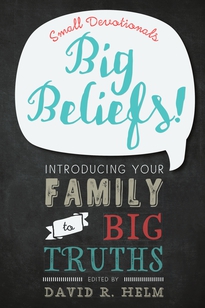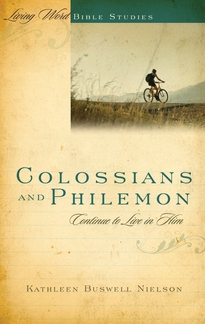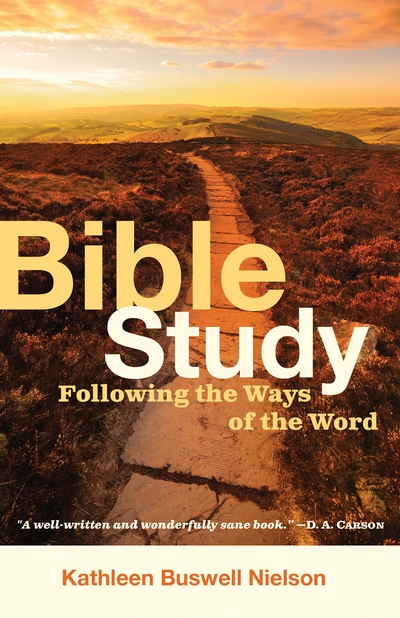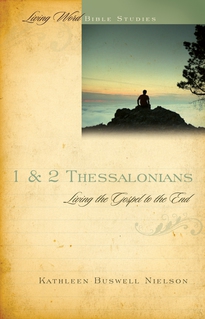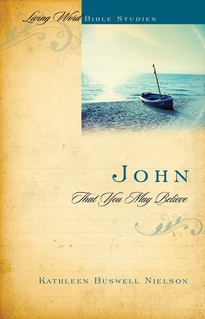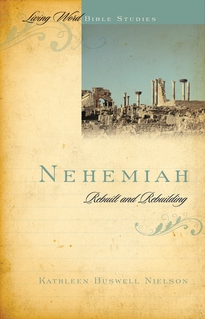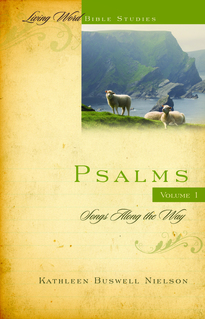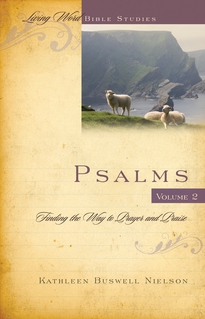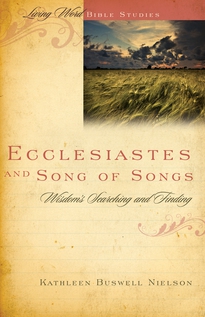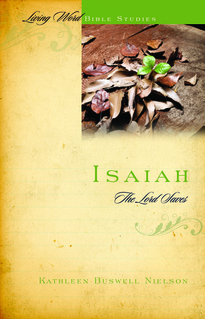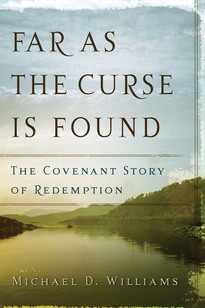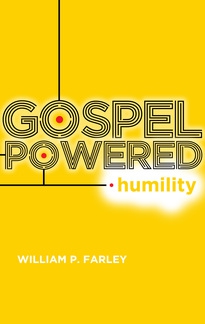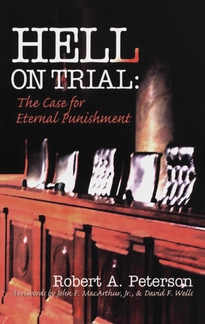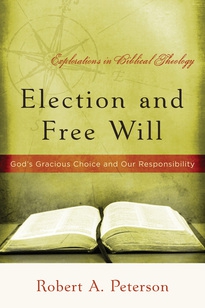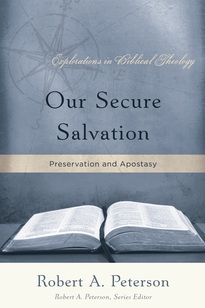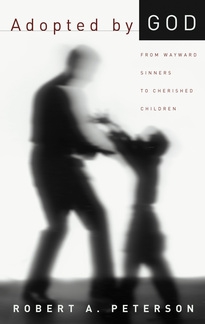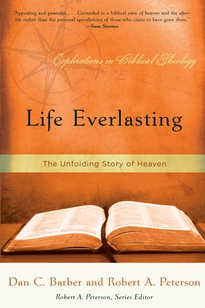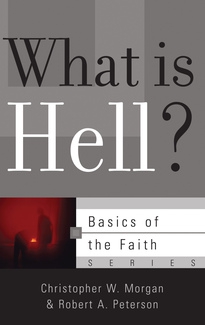Big Beliefs!: Small Devotionals Introducing Your Family to Big Truths edited by David R. Helm
192 pages | List Price: $14.99 | Paperback
Summary
It is a wonderful privilege to watch children start to grasp the precious truths of Scripture. Parents may hope to see this in a family devotion time, only to become overwhelmed and exhausted by the daily difficulties involved. We need help!
Big Beliefs! is a devotional expressly intended to enable parents to succeed and children to grow in grace and knowledge. Three weekly readings accompanied by suggested Scripture passages introduce and simply explain thirty-three key theological concepts found in the Westminster Confession of Faith (included in its entirety, in modern English). Questions following each reading will help you to start a conversation about what you have learned each day. This nonthreatening, encouraging devotional will make a comprehensive beginning to your child’s understanding of Christianity’s big beliefs.
Endorsements
“Big Beliefs! is a great book: (1) it’s faithful, telling children the truth about God, his Word, and what his people must believe; (2) it’s substantive, not dumbing down doctrine to present it to children; and (3) it’s realistic, providing language, illustrations, and lesson length that will work for real families who have real children.”
—Starr Meade, Author, Training Hearts, Teaching Minds: Family Devotions Based on the Shorter Catechism
“A family devotional teaching the most important truths in the world in simple bite-size chunks with up-to-date illustrations and stimulating questions. Why didn’t someone think of this before? I commend this excellent resource to all Christian families.”
—David Murray, Pastor, Grand Rapids Free Reformed Church
Table of Contents
Acknowledgments 7
Introduction 9
Part One: God’s Word
Lesson 1: The Holy Scripture 15
Part Two: God
Lesson 2: God and the Holy Trinity 21
Lesson 3: God’s Eternal Decree 24
Lesson 4: Creation 27
Lesson 5: Providence 30
Part Three: The Fall, Sin, and Mankind
Lesson 6: The Fall of Man, and Sin and Its Punishment 35
Lesson 7: God’s Covenant with Man 38
Lesson 8: Christ the Mediator 41
Part Four: Salvation
Lesson 9: Free Will 47
Lesson 10: Effectual Calling 50
Lesson 11: Justification 53
Lesson 12: Adoption 56
Lesson 13: Sanctification 59
Lesson 14: Saving Faith 62
Lesson 15: Repentance unto Life 65
Part Five: The Christian Life
Lesson 16: Good Works 71
Lesson 17: The Perseverance of the Saints 74
Lesson 18: The Assurance of Grace and Salvation 77
Lesson 19: The Law of God 80
Lesson 20: Christian Liberty and Liberty of Conscience 83
Lesson 21: Religious Worship and the Sabbath Day 86
Lesson 22: Lawful Oaths and Vows 89
Lesson 23: The Civil Authorities 92
Lesson 24: Marriage and Divorce 95
Part Six: The Church
Lesson 25: The Church 101
Lesson 26: The Communion of Saints 104
Lesson 27: The Sacraments 107
Lesson 28: Baptism 110
Lesson 29: The Lord’s Supper 113
Lesson 30: Church Discipline 116
Lesson 31: Synods and Councils 119
Part Seven: The Last Things
Lesson 32: The State of Men after Death and the Resurrection of the Dead 125
Lesson 33: The Last Judgment 129
Appendix: The Westminster Confession of Faith 135

